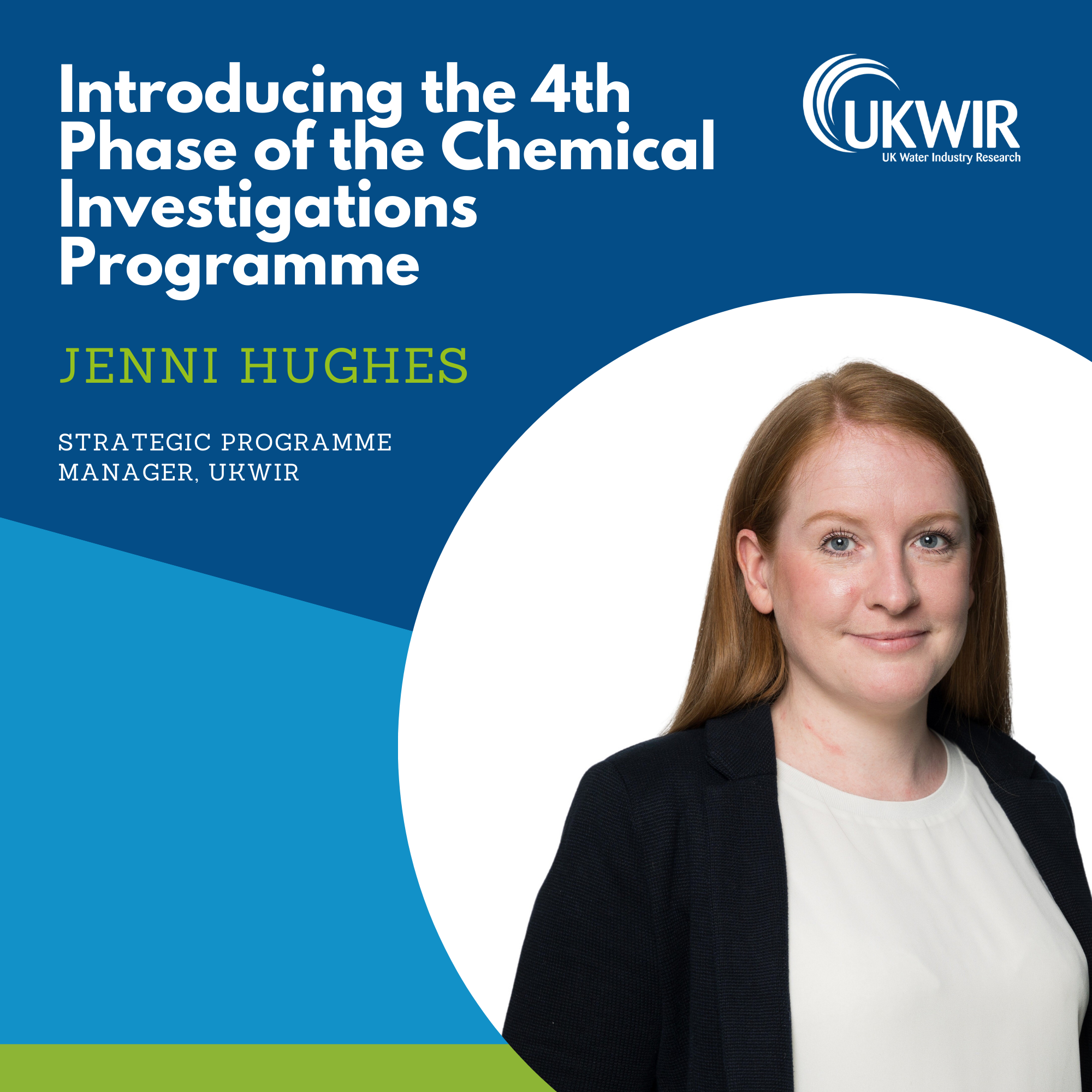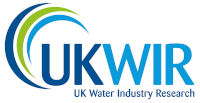Helping to secure our water cycle today and tomorrow by enabling research and innovation by connecting people.
Our team occasionally write articles that are intended to invite the involvement and contribution of the people and organisations the topics affect. You can join the debate and comment by logging in with your account and sharing your thoughts.
Introducing the 4th Phase of the Chemical Investigations Programme - Jenni Hughes, UKWIR Strategic Programme Manager
Published On 05/04/2024

For this month’s blog, we spoke to UKWIR strategic programme manager, Jenni Hughes. With ten years’ experience working on the industry’s Chemical Investigations Programme (CIP), she outlines what we can expect from the upcoming phase of this vital, ongoing project. Alongside this, she also offers her reflections on the experience of moving from leading water company projects, to coordinating collaborative, sector-wide research.
1. How does CIP benefit the water industry?
CIP has provided significant benefits to the water industry since the first phase of investigations in AMP5 (2010). CIP started in response to current and emerging legislation on trace chemicals in the water environment, with CIP Phase 1 (CIP1) determining the sources and pathways of chemicals entering rivers, via wastewater treatment works (WwTW) discharges. Following this, CIP2 expanded the number of WwTWs studied to understand the scale of the challenge, there were also trials of technologies to remove the chemicals before water is discharged to the environment. The most recent phase of the programme to be completed, CIP3, evolved to also include investigations on Antimicrobial Resistance (AMR) and microplastics, further expanding the knowledge base for these important challenges.
As we embark on the next phase, CIP4, we have an even greater variety of investigations lined up. There is so much we’ve learned already, but there’s always new and emerging issues to tackle too! The power of delivering these investigations with UKWIR has been immeasurable – the sharing of knowledge, data and the reduction in duplicating trials has meant that there has been much more weight to the outputs. It has been truly collaborative research between the water and sewerage companies in England and Wales, and the environmental regulators, which has significantly increased the evidence base for all areas covered within the programmes.
2. Are there any specific projects from past phases of the programme that have been particularly impactful for the sector?
The impact of the investigations has been really significant for the water industry. There have been many conferences over recent years where CIP data and outputs have been presented and discussed, so it has been a great source of information! One of the most useful data sets and reports was on the trend-monitoring of a group of substances that have had their use restricted (22/EQ/01/30). The data has shown a decrease in concentrations over the monitoring which has meant that the restrictions have proven effective, as well as preventing the water industry from having to consider expensive and energy intensive removal technologies for these substances. A great result for the water industry and the environmental regulators too. The companies will continue this monitoring for at least the next five years to further confirm the die-away trend over time.
3. The next phase of the CIP programme, CIP4, is due to commence shortly. What are the focuses of this next stage of work? What does it build on from CIP3?
CIP4, which will start soon, includes even more investigations than CIP3. As mentioned, we’ve learned a lot, but there are always going to be more challenges to face. CIP4 will be building on the microplastics and AMR work previously completed, and will now also include an integrated constructed wetlands investigation. There will also be sampling for emerging substances, as well as the trend monitoring continuing. CIP4 will also include investigations on PFAS and PFOS; the companies will be trying to identify sources of PFOS within sewerage catchments, and collecting data on a number of PFAS substances. There’s also going to be an investigation looking at the impact of spreading biosolids to soils and groundwater; we know this is a really important topic of interest to a number of stakeholders, so the collaborative research on this will be helpful for all the water companies.
4. How can water company colleagues stay up to date on CIP findings?
The water industry, along with the Environment Agency (EA) and Natural Resources Wales (NRW) are in the final scoping stages of the CIP4 investigations. There is a project resume here, and reports will start to come from the work in 2027. There are over 20 CIP reports published on the website, spanning from CIP1 (2010-2013), to CIP3 (2020-present) that are free to view and download for all UKWIR members. Further to this, the data collected since CIP2 has been made freely available through the CIP data tool, providing access to a huge amount of data, enabling others to use this to advance their own research.
5. Lastly, how does your previous experience of working in a water company influence your approach to now coordinating research at UKWIR? How did your early involvement in UKWIR’s research shape your career?
My experience of being involved in UKWIR research while I was at Thames Water showed me the value of collaborative research - the water industry has some significant shared challenges that can be best addressed by working together to understand the problems and the solutions we all face.
The Big Questions provide a really useful framework for shaping the research programme, and having been a member of various project steering groups over the years, as well as being co-lead on the plastics Big Question, I can really see how working together gets us to the answers quicker and more effectively.
Being involved with UKWIR helped my career at Thames; I was able to expand my network through working groups and working with colleagues from across the UK and Ireland and also helping to improve my knowledge. I’ve been involved in some really interesting research and was given the opportunity to be the expert within my company, as well as raising my profile by sharing these research outputs with decision makers. For me now, I use this background to make sure that we are continuing to drive our research programme forward to benefit the water industry; we are getting suggestions for research that will answer the right questions, and we are delivering them to help shape decision making within companies and provide evidence to regulators.
To find out more about previous phases of CIP, please visit our publications page and search ”CIP” to explore our collection of reports and projects summaries published in relation to these ongoing investigations.
Written By:

